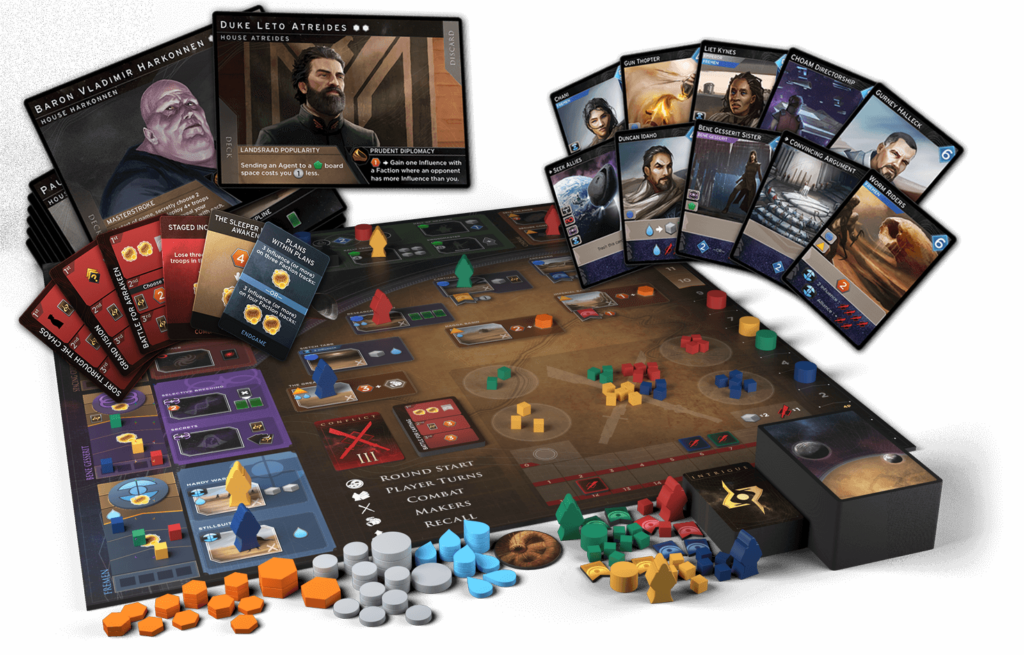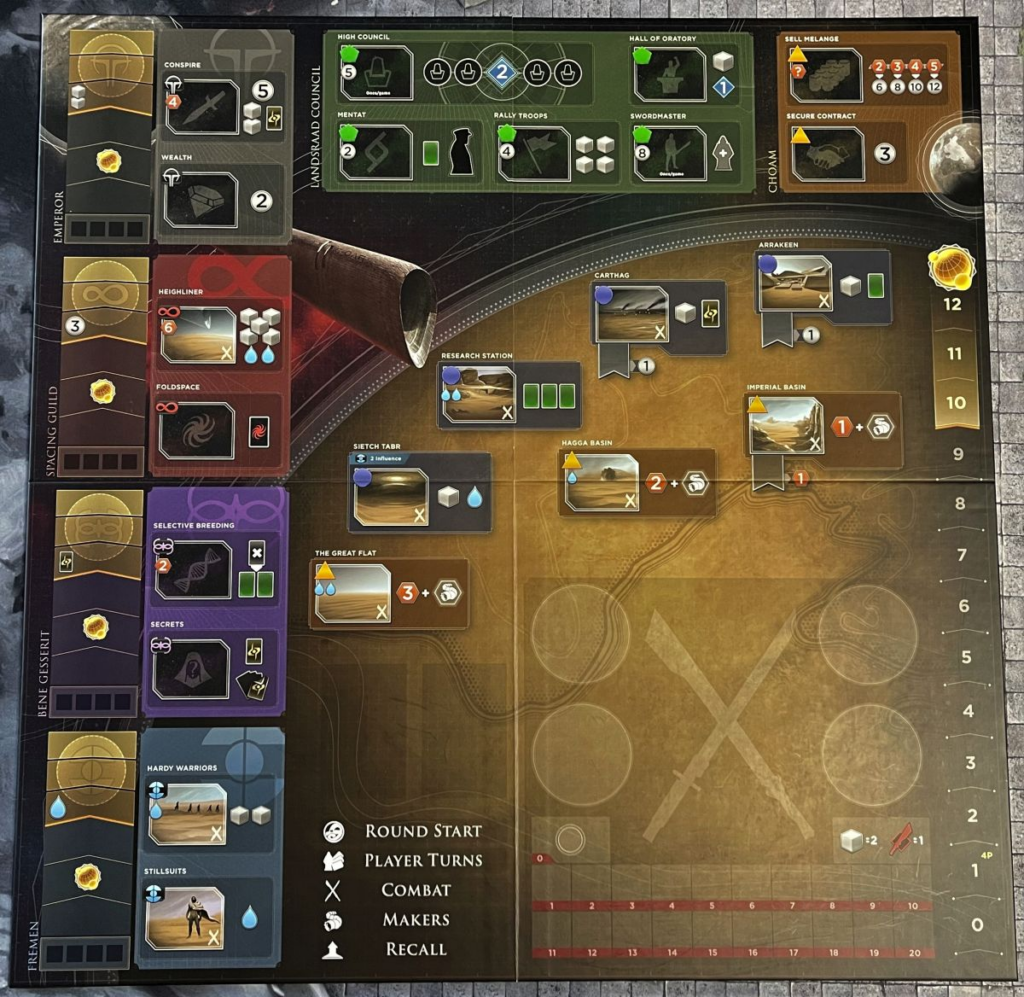Dune: Imperium, designed by Paul Dennen and published by Dire Wolf Digital, immerses players in the political and military struggles of the Dune universe.
Combining deck-building and worker placement mechanics, the game challenges players to lead one of the Great Houses in a battle for control over the desert planet Arrakis. Players must manage resources, forge alliances, and engage in combat to accumulate victory points and secure dominance.
Pros
- Innovative Mechanic Integration: The fusion of deck-building and worker placement offers a dynamic gameplay experience. Each decision, from card selection to agent placement, carries significant weight, requiring strategic planning and adaptability.
- Thematic Immersion: The game effectively captures the essence of the Dune universe. Players interact with key factions like the Bene Gesserit and the Fremen, and the struggle for spice mirrors the narrative’s central conflict .
- High Replayability: With asymmetric leaders, a variety of cards, and multiple paths to victory, each playthrough offers a unique experience. The game’s depth encourages repeated plays to explore different strategies.
- Engaging Solo Mode: The solo variant provides a challenging experience, with an AI system that simulates competitive opponents, maintaining the game’s strategic depth even in single-player sessions .
Cons
- Component Quality: While functional, some components, such as the wooden tokens, are considered basic and may not meet the expectations of players accustomed to more deluxe game pieces
- Learning Curve: New players might find the combination of mechanics and the multitude of options overwhelming initially. However, the game’s design facilitates learning through play.
- Combat Resolution: Some players feel that the combat system lacks depth, relying more on resource accumulation than tactical maneuvering, which might not satisfy those seeking intricate battle mechanics .
Comparison to Similar Games
- Lost Ruins of Arnak: Both games blend deck-building with worker placement. However, Dune: Imperium emphasizes player interaction and conflict, while Arnak focuses more on exploration and resource management.
- Lords of Waterdeep: While Lords of Waterdeep is a pure worker placement game, Dune: Imperium adds depth with its deck-building element, offering more strategic variability.
- Tyrants of the Underdark: This game also combines deck-building with area control, but Dune: Imperium integrates these mechanics within a more thematic and narrative-driven context.
Final Thoughts
Dune: Imperium stands out as a compelling strategy game that successfully marries thematic depth with innovative mechanics. Its blend of deck-building and worker placement provides a rich and engaging experience, appealing to both fans of the Dune franchise and strategy enthusiasts. While it has minor shortcomings in component quality and a potential learning curve, the game’s strengths in strategic depth and replayability make it a valuable addition to any board game collection.
And remember, Frontline Gaming sells gaming products at a discount, every day in their webcart!






